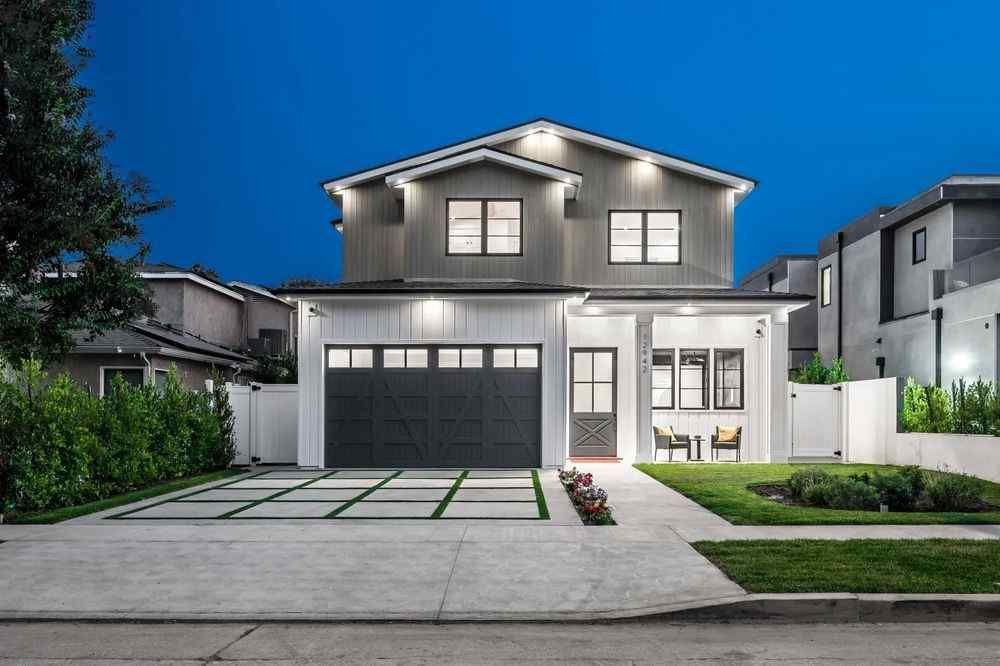- Common issues with overhead door rollers include noise, shaking, and stuck doors.
- Timely garage door rollers replacement can prevent damage to other door components.
- Professional help ensures safe and accurate roller replacement.

Garage doors are built to withstand daily use, but over time, wear and tear can impact their components, especially the garage door rollers. These rollers are crucial for smooth door operation, allowing the Door to glide up and down with ease. However, when they start malfunctioning, you might encounter a range of problems from squeaky sounds to a stuck door. This guide will help you identify common issues with your overhead door rollers, determine when garage door rollers replacement is necessary, and explain how to change garage door rollers safely.
Common Issues with Garage Door Rollers
Garage door rollers are subjected to constant movement and pressure, making them prone to various problems over time. Recognizing early signs of damage can save you from costlier repairs later on. Here are a few common issues:
- Noisy Operation: One of the first signs of roller trouble is noise. If you hear squeaking or grinding when opening or closing your garage door, it's likely due to worn or poorly lubricated rollers.
- Shaky Movement: A smooth garage door is what everyone expects, but if you notice your Door shaking or wobbling, this could indicate misaligned or damaged rollers. Over time, this can cause strain on other parts of the door system, such as the tracks and opener.
- Stuck or Slow Door: Another issue that arises is a stuck or sluggish garage door. Worn-out garage door rollers often create friction, making it harder for the Door to move smoothly, which could result in the Door stopping midway.
When these issues occur, prompt action is necessary. Ignoring these signs can lead to larger, more expensive problems, such as damage to the door tracks or the need for a complete door replacement.
When To Consider Garage Door Rollers Replacement
Not all roller issues can be solved with simple lubrication or tightening. In some cases, replacing the rollers is the best option for restoring the Door's functionality. Here are some scenarios when you should consider garage door rollers replacement:
- Excessive Wear and Tear: If the rollers appear visibly worn, cracked, or damaged, replacing them is crucial. This is particularly important for plastic or nylon rollers, which tend to wear out faster than steel ones.
- Persistent Noise: If lubricating your rollers doesn't stop the squeaking or grinding, it's a sign they've worn out and need to be replaced. Continuing to use faulty rollers can put stress on the Door's motor and tracks, leading to further complications.
- Rollers Jumping the Track: If the rollers frequently jump out of the track, it indicates they are no longer functioning as they should. In this case, garage door rollers replacement is necessary to ensure your Door operates safely and efficiently.
Replacing your rollers can also improve the overall performance and longevity of your garage door. New, high-quality rollers reduce noise, provide smoother operation, and help avoid future costly repairs.
How to Change Garage Door Rollers
If you're experiencing one or more of these issues, you may be wondering how to change garage door rollers. While some homeowners may attempt this task on their own, it's important to note that changing rollers can be a complicated process, especially for heavier doors or older systems.
Steps to Change Your Rollers:
- Disconnect the Garage Door Opener: Start by disconnecting the power to your garage door opener to prevent the Door from moving while you work.
- Lift the Door Manually: Open the garage door manually and secure it in place with locking pliers. This ensures the Door doesn't fall during the repair.
- Remove the Old Rollers: Carefully remove the roller brackets to access the old rollers. Be mindful of the Door's weight and ensure it is properly supported before removing the rollers.
- Insert New Rollers: Replace the old rollers with new ones that match your Door's specifications. High-quality steel or nylon rollers are often recommended for longevity and smooth operation. 5. Test the Door: Once the rollers are in place, test the Door to ensure it moves smoothly without noise or shaking.
For those unfamiliar with garage door systems, calling a professional is highly recommended. This is especially important if your Door uses a spring system, as these springs are under extreme tension and can cause serious injury if mishandled. A trained technician can not only replace the rollers efficiently but also inspect the overall system for any other issues.
Why You Should Hire a Professional
While knowing how to change garage door rollers can be useful for minor fixes, professional assistance ensures the job is done safely and correctly. Technicians at Balanced Garage Doors are experienced in handling all types of overhead door rollers and provide expert service to keep your Door functioning properly.
Benefits of Hiring a Professional:
- Safety: Garage doors weigh a considerable amount, and their components are under tension, which can make roller replacement dangerous. Professionals have the training and tools to perform the job safely.
- Proper Installation: Incorrectly installed rollers can lead to more issues down the line, such as track damage or door imbalance. A professional can make sure everything is installed properly, preventing future breakdowns.
- Inspection: Along with replacing the rollers, a technician can inspect other components of your garage door, such as the tracks, springs, and cables, to ensure they're functioning properly.
If you're noticing issues with your garage door rollers, don't wait for the problem to escalate. Contact us today and schedule a professional inspection and replacement service. Your garage door will be back to working perfectly in no time!
